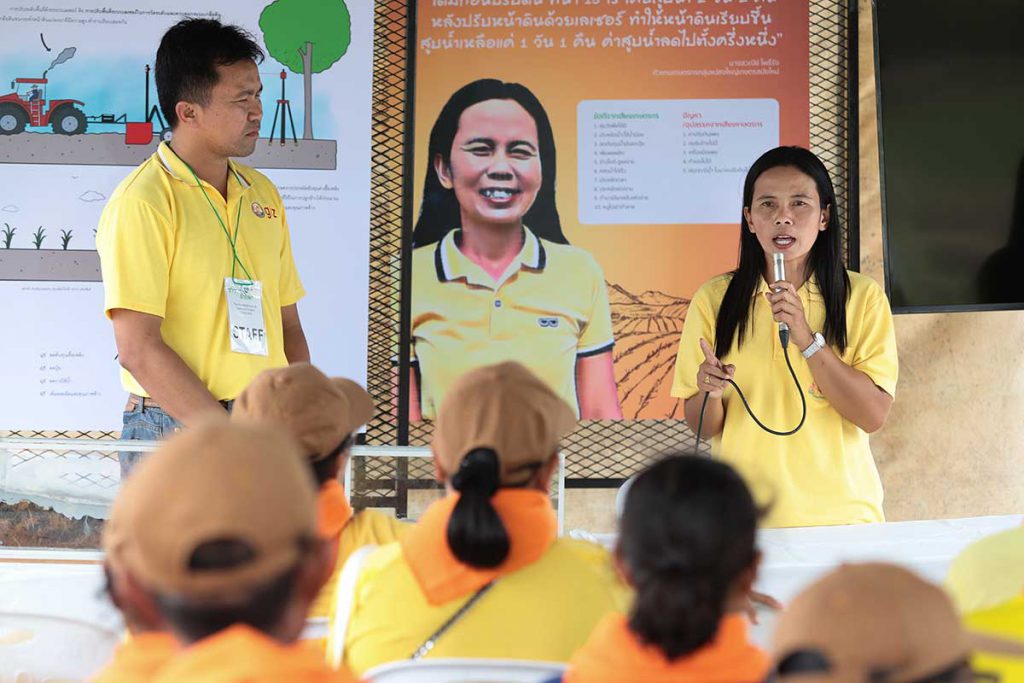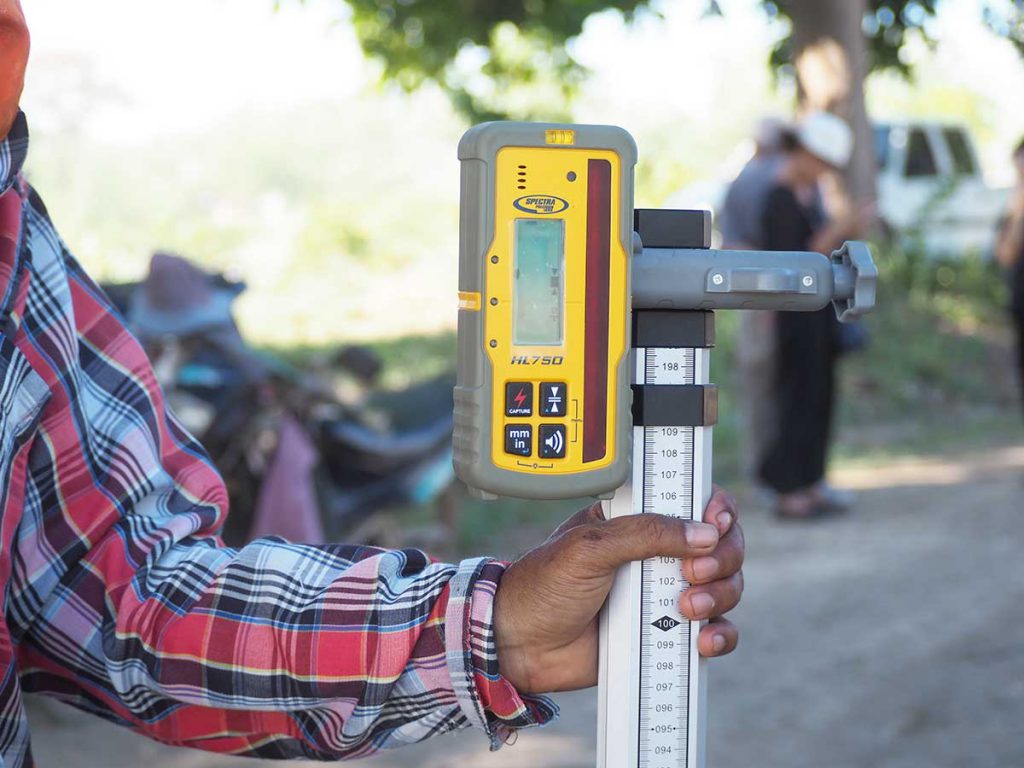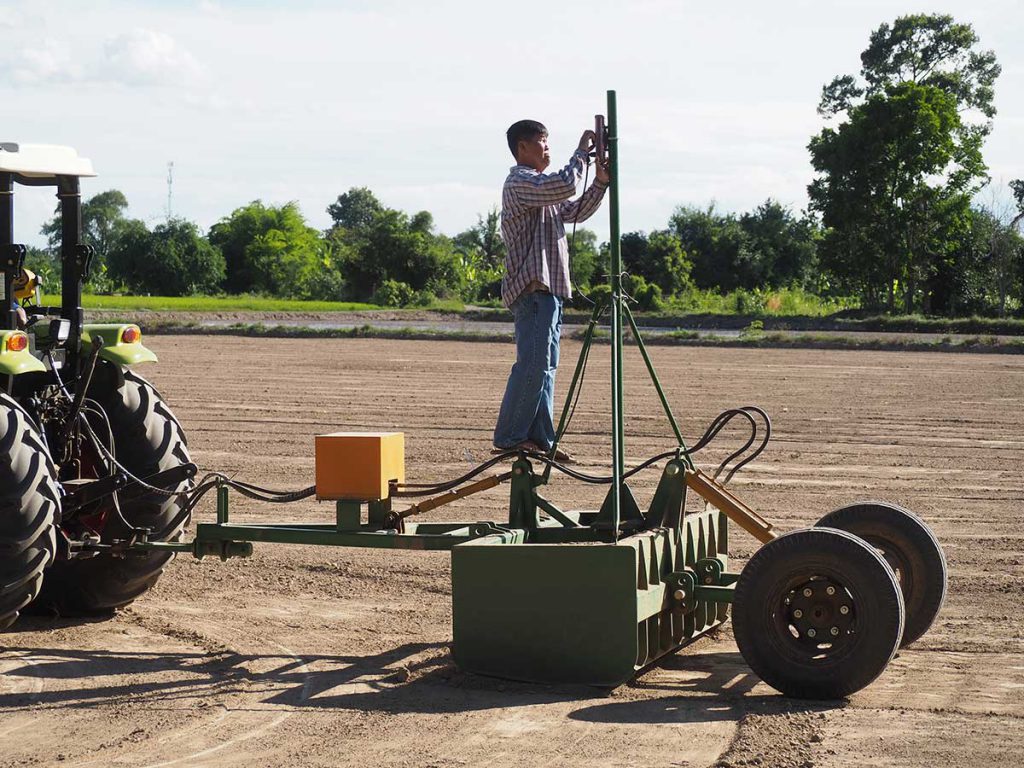A few years ago, Sawanee Phorang heard about climate-friendly technology for the first time and how a change in farmers’ behavior could curb excess emissions of greenhouse gases from the rice fields.
She questioned the points of it all.
“I have heard about climate change before but was never aware that the rice farming and climate change are deeply intertwined,” Ms. Sawanee shared her thoughts.
Little by little, the 41-year-old farmer from Doem Bang Nang Buat district of Suphan Buri province began to develop an understanding about ‘climate-smart’ rice farming.
“I never knew that agriculture itself is a sector that generates high levels of carbon emissions and worsens the climate situation,” Sawanee said.
“I was curious to learn more about the land-levelling and how it can solve climate change while being able to make a living.”
In unleveled rice fields of her 35 rai, she spent three times more water than needed.
After the farmland was leveled, the cost investment went down from 5,000 baht per rai to 3,000 baht, while the crop yields are up to 1 tonnes from 750 kilograms.
“In the past, water had been pumped into the paddy fields for two consecutive days that I had to stay overnight in the field but now only one day is needed because of the flat surface.”
She also uses microbial pesticides to get rid of weeds that grow rapidly just before the harvest.
Sawanee has continued to grow rice in a sustainable and meaningful way but was still curious if her action alone would be successful in slowing down climate change.
“I changed myself first and then, I asked my fellow farmers to learn more about sustainable rice farming.”
Climate action needs every one of us to involve, she added.
It is not only the crop yields that went up, but she has more time to spend with her husband and children.
Today, Sawanee is a smart farmer in her hometown and active participant farmer of a joint public-private project called: Thai Rice NAMA (Nationally Appropriate Mitigation Actions), which aims to transform the Central Plains of Thailand to low-carbon rice farming by encouraging small-scale rice farmers to adopt climate-friendly techniques.
Thailand’s Ministry of Agriculture and Cooperatives Minister and the Deutsche Gesellschaft fur Internationale Zusammenarbeit (GIZ) GmbH, the German federal enterprise supporting sustainable development worldwide are key supporters of the project.
Thai Rice NAMA will pass on low-carbon technology know-how to benefit at least 100,000 local rice farming households covering nearly three million rai of rice fields in six provinces including Chainat, Angthong, Pathum Thani, Sing Buri, Ayutthaya, and Suphan Buri.
The Bank for Agriculture and Agricultural Cooperatives (BAAC) also offers a Revolving Fund (RF) for farmers to invest in low-emission production without increasing their debt.
Thai Rice NAMA is funded by the Nationally Appropriate Mitigation Action (NAMA) Facility, a multi-donor climate finance facility.






